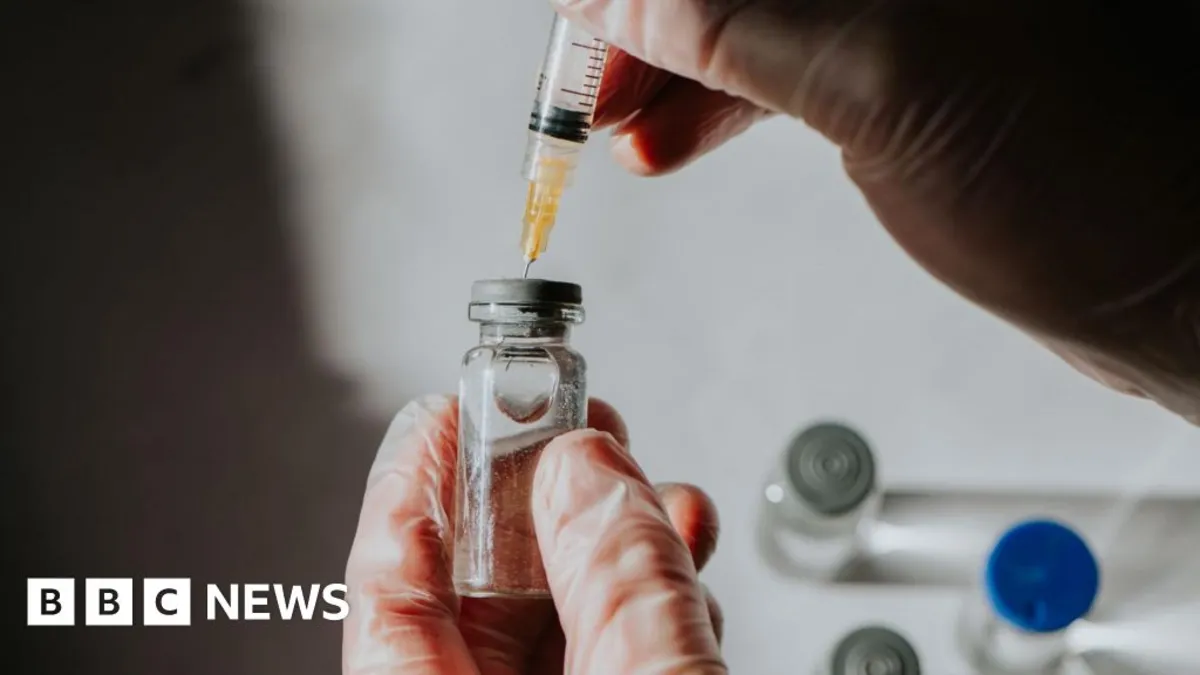
For the first time, an innovative injection to prevent HIV is set to be offered to patients through the NHS in England and Wales. This new policy aligns with similar provisions already in place in Scotland. The long-acting injection, known as cabotegravir (CAB-LA), is administered six times a year or every other month, providing a viable alternative to the daily pills traditionally used for HIV prevention.
Health experts are optimistic that the rollout of cabotegravir injections will significantly contribute to the UK's goal of eliminating new HIV cases by the year 2030. In addition to this promising development, early research on another injection, lenacapavir, indicates the potential for transitioning individuals to an annual HIV prevention jab, further simplifying the process of safeguarding against the virus.
Wes Streeting, the Secretary of State for Health and Social Care, emphasized the importance of this advancement, stating, "The approval of this game-changing injection perfectly embodies what this government is determined to deliver - cutting-edge treatments that save lives and leave no one behind." He highlighted that for vulnerable populations unable to utilize other methods of HIV prevention, this injection represents a beacon of hope.
The injection is a significant addition to existing HIV prevention therapy, commonly referred to as PrEP (pre-exposure prophylaxis). PrEP has been available to HIV-negative individuals for several years and has proven highly effective in reducing the risk of HIV infection. However, daily pills can pose challenges for some individuals, including issues with accessibility, practicality, and potential embarrassment about taking medication.
For many, the stigma surrounding HIV medication can be a barrier. Concerns about privacy, such as the possibility of family members or housemates discovering their pills, can deter individuals from adhering to their treatment regimen. Additionally, factors like homelessness or domestic violence can complicate the daily intake of oral PrEP. The introduction of a long-lasting injection that lasts for months offers significant advantages in terms of convenience and discretion.
HIV, or Human Immunodeficiency Virus, is a virus that compromises the immune system, making it increasingly difficult for the body to combat everyday infections and diseases. The virus can be transmitted through unprotected sexual intercourse, sharing needles, or from mothers to their babies during childbirth. To maximize the effectiveness of the cabotegravir injection, it should be used in conjunction with safer sex practices, such as the use of condoms.
The NHS has negotiated a confidential discount with the manufacturer of the cabotegravir injection, which typically costs around £7,000 per patient per year. This groundbreaking jab will primarily target adults and adolescents with a healthy weight who are at high risk of sexually acquired HIV and are eligible for PrEP but face challenges in taking oral tablets.
It is anticipated that approximately 1,000 individuals will be able to access this revolutionary treatment from NHS-operated sexual health clinics in the coming months. The National Institute for Health and Care Excellence (NICE) is overseeing this rollout, though charities have voiced concerns about lengthy waiting times for clinic appointments. Richard Angell from the Terrence Higgins Trust has urged that the transformative therapy be explored in various settings beyond just sexual health clinics to ensure it reaches those who need it most.
The introduction of the cabotegravir injection marks a significant step forward in the fight against HIV in the UK. By providing a discreet and effective alternative to daily pills, this treatment aims to empower individuals at risk and ultimately contribute towards the goal of eliminating new HIV infections by 2030.